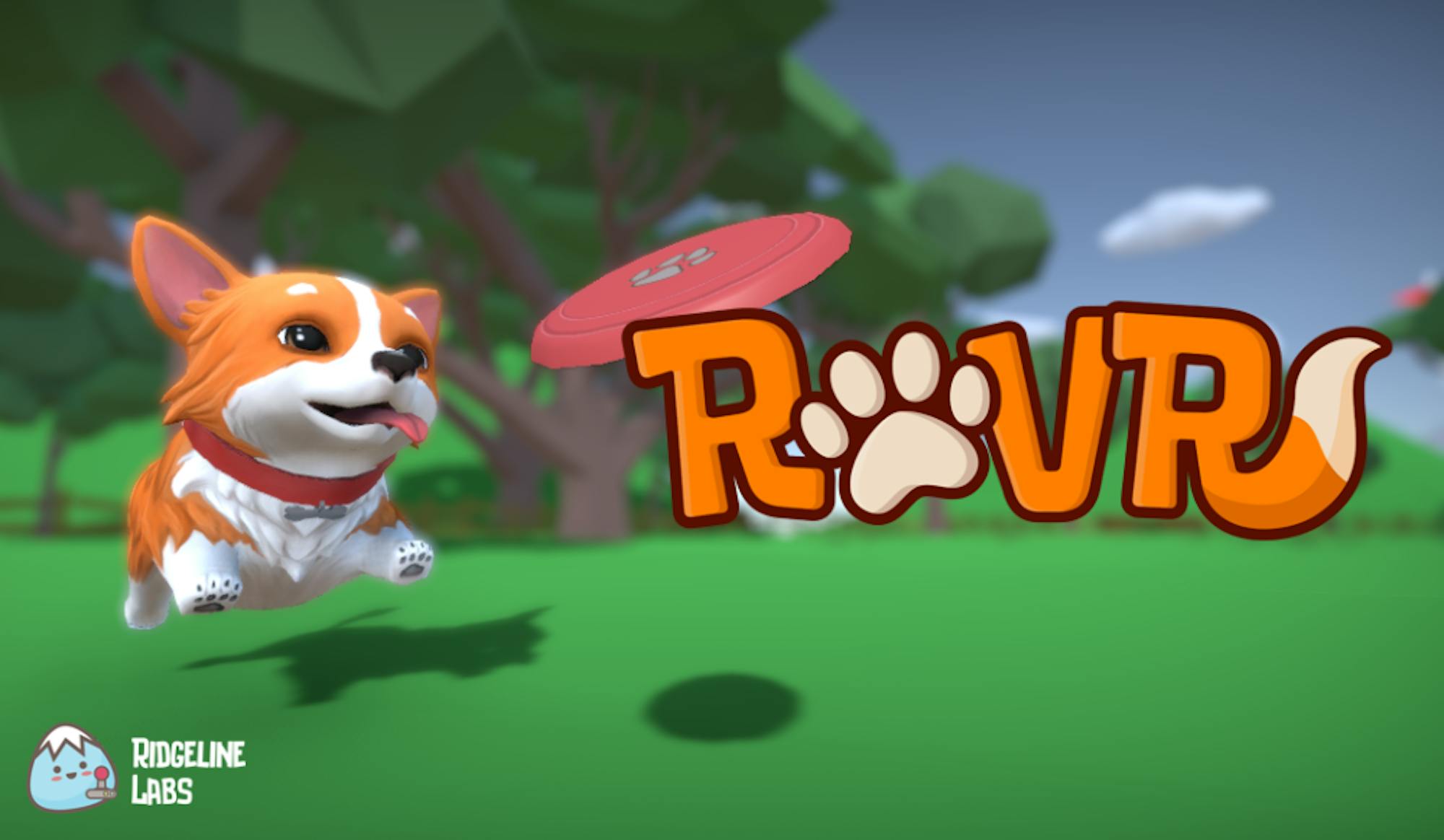Dogs, and dog memes, are having a bit of a moment on the web. The Twitter account WeRateDogs, which offers endlessly positive evaluations of dogs and their adorable shenanigans, has 3.38 million followers as of this writing. The Facebook page Doggos, which delivers a nonstop stream of dog memes, also boasts 430,000 likes.
Offline, one need only stand on the Academic Quad to see the affection Tufts students shower on the dogs that are walked through campus. Breathless reports made news earlier this summer that the needs of their dogs factor into a significant number of millennials’ decisions to purchase homes.
Although millennials may covet dogs, dog ownership, with its attendant costs and time requirements, is out of reach for many young people, particularly college students. Making dog ownership, or some reasonable facsimile of it, accessible to those whose lives just can’t accommodate a living and breathing dog, is the goal of "RoVR" (2018), a virtual reality (VR) and augmented reality (AR) simulator.
Pronounced “rover," "RoVR" is the brainchild of computer science alums Jeremy Slavitz (E'17), whose video games have previously been covered by the Daily, and Henry Zhou (E'17).
“'RoVR' is a VR/AR dog simulator [for] people who want to have a dog ownership experience but can’t,” Zhou said.
Zhou went on to explain, “Caring for a real dog and giving it a good life is a lot of responsibility, but now, with this immersive VR/AR technology, and when you combine that with artificial intelligence and machine learning, we can now create an experience that essentially emulates the dog ownership experience.”
Zhou and Slavitz first met in a computer graphics course their junior year, where they discovered their joint interest in virtual reality and its applications. The idea for RoVR came to them as they prepared for their senior design project, according to Zhou.
“We were trying to brainstorm ideas … and we took a look at the VR landscape and we saw that a lot of the games were just shooter games or zombie games, just games primarily aimed at hardcore, male gamers," Zhou said. "We believe that that was because that the majority of VR headset owners at the time, which is still true, are men. There’s a statistic that says that 95 percent of all Vive headset owners are men aged 25 – 35."
In addition to noticing that the majority of VR offerings were targeted at hardcore gamers, Slavitz and Zhou also noticed that dogs were extremely popular on social media.
“I had noticed on the internet that there are these social media accounts called ‘dogspotting’ and ‘WeRateDogs,' just really silly accounts that post dogs that they see out there in real life," Zhou said. "There’s this hilarious vernacular to describe these dogs, like ‘very good boy’, or ‘look at this doggo’ … There’s a huge internet culture behind dogs.”
The final reason that Zhou and Slavitz settled on “RoVR” for their senior design project was because neither of them had ever owned dogs.
“Jeremy and I never owned dogs growing up and we always wanted to,” Zhou said. "Those three reasons combined motivated us to build a VR dog simulator.”
Zhou and Slavitz worked on “RoVR” as part of their senior design project, and at one point gave a demo of an early version of the game in Tufts' Mayer Campus Center in early 2017.
Reflecting on the success of that demo, Zhou remarked, “Back then we had very little funding and we were using relatively crude assets, but people really liked the concept and we had some pretty positive responses to it.”
To continue work on "RoVR," Zhou and Slavitz also applied to the Play Labs accelerator at MIT, which describes itself as “a new startup incubator/accelerator program for MIT-affiliated startups using playful technologies in any industry.” Despite not having an MIT team member, Zhou and Slavtiz were accepted into the program, which provided them with $20,000 in seed funding as well as access to mentorship and support.
After the end of their time at Play Labs and incorporating as Ridgeline Labs, Slavitz and Zhou plan to continue working on “RoVR” as the game nears release, and believe that the technical foundations of “RoVR” have applications beyond virtual dogs. The pair are also bullish about the future of AR and VR as platforms.
Slavitz derided those who think that VR/AR are just fads as “ignorant in the same way that people who never thought that the internet would be useful are ignorant.”
Zhou went on to say, “The fact of the matter is that companies are pouring billions of dollars into R&D for AR and VR technologies, so, in our opinion it’s only a matter of time before a mass consumer solution gets released.”
The Kickstarter for "RoVR" runs through Sept. 15. A pledge of $20 or more buys access to digital copy of “RoVR” upon the game’s planned release in March 2018. The game will be available on the HTC Vive and the Oculus Rift and on iOS 11 devices through ARKit.
With 'RoVR,' Tufts computer science alums bring man’s best friend to virtual reality

Visualization of “RoVR," a video game created by computer science alums Jeremy Slavitz (E’17) and Henry Zhou (E’17). The goal of the game is to allow people to experience dog ownership when they cannot have it in real life.





